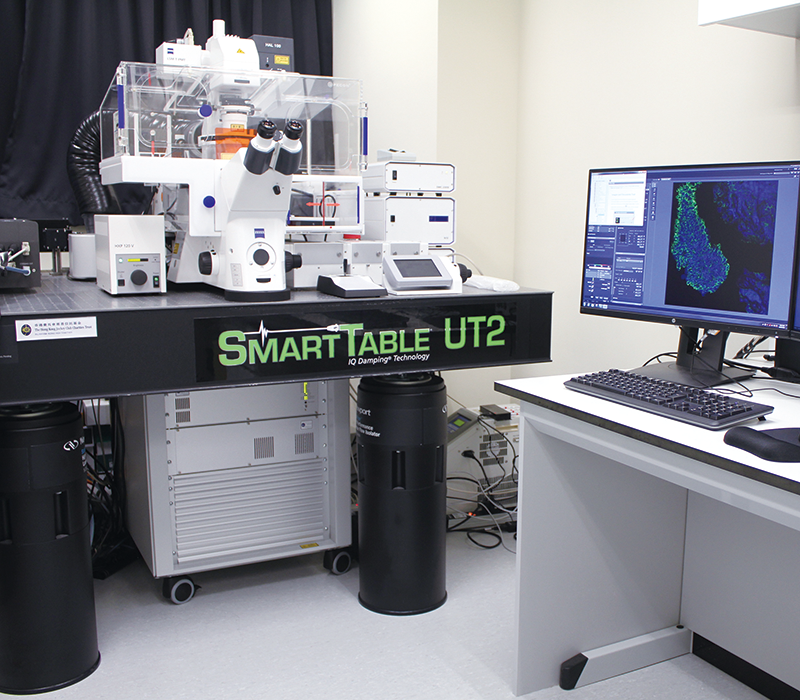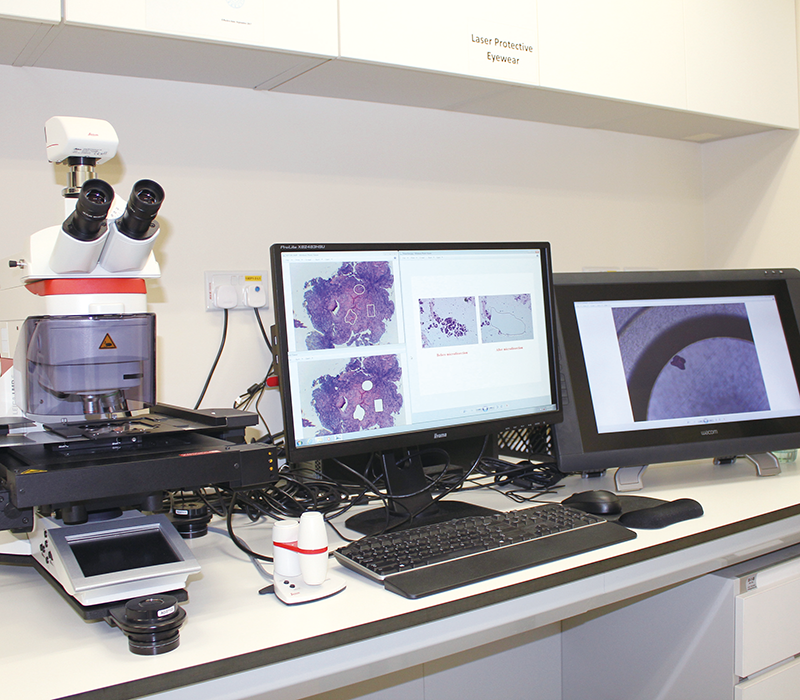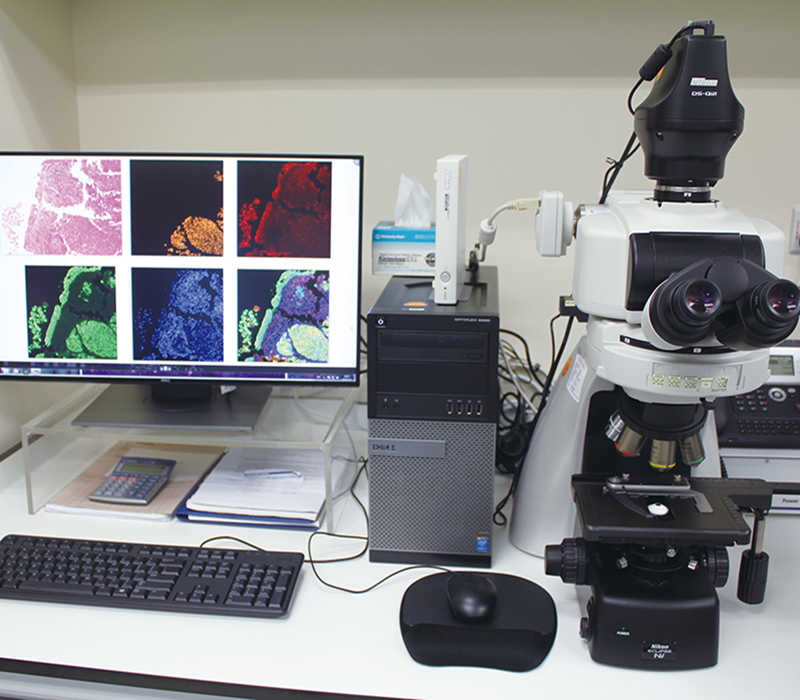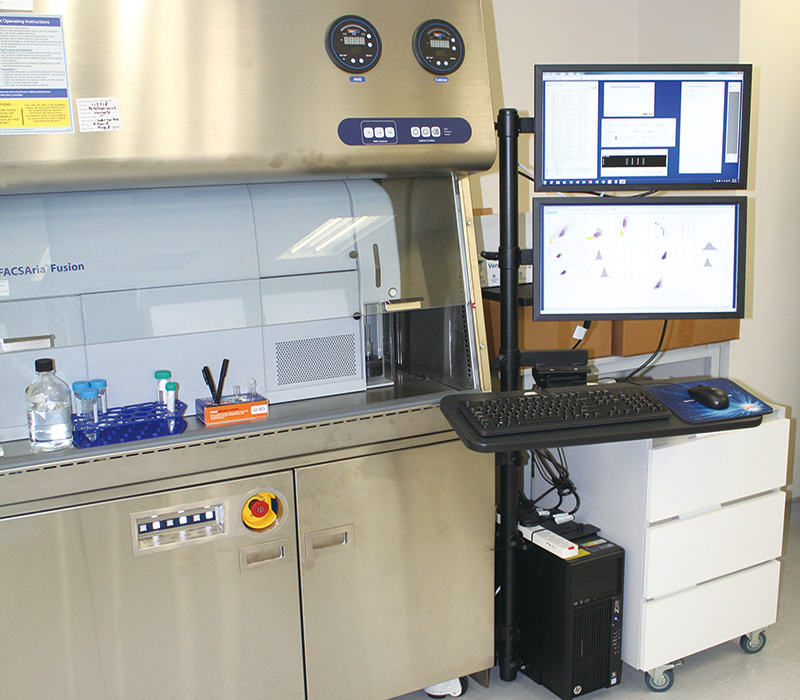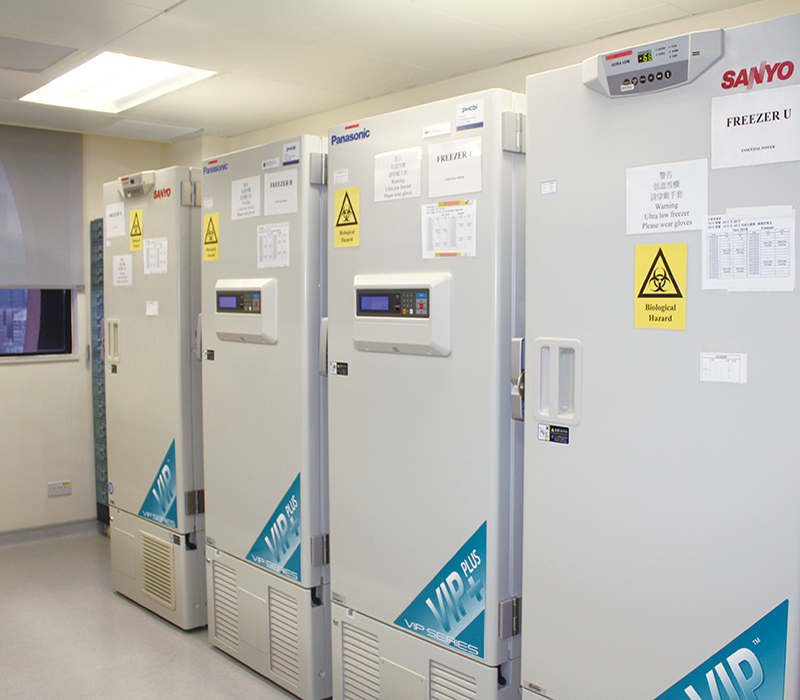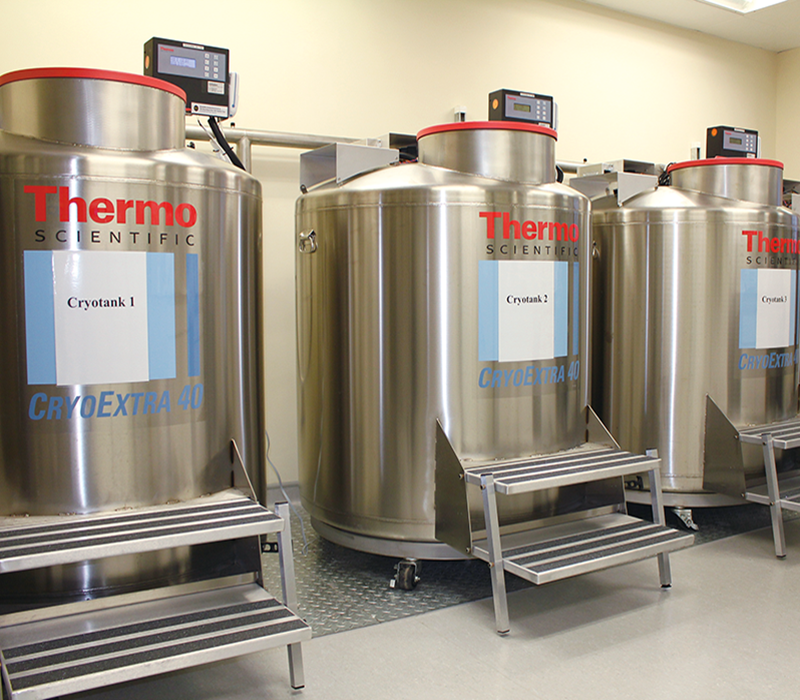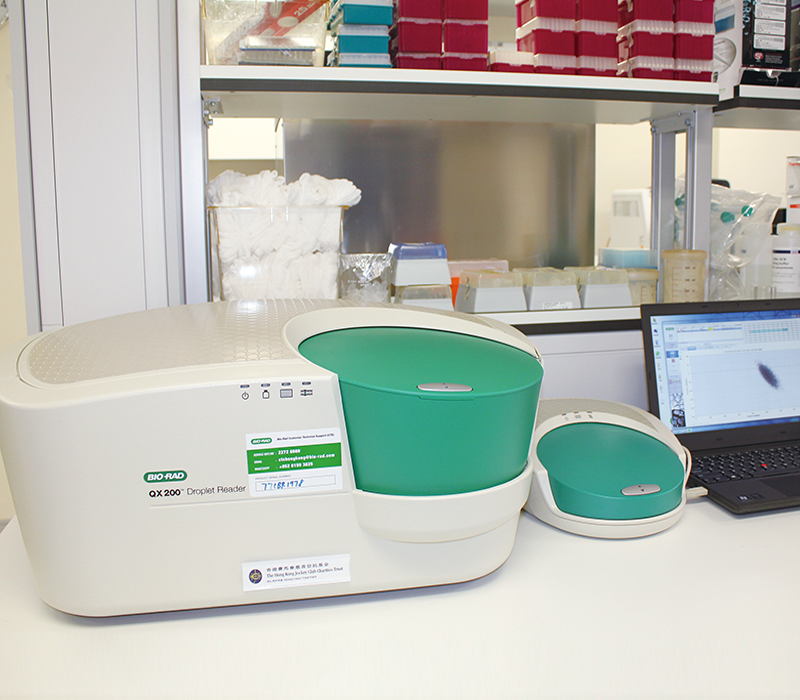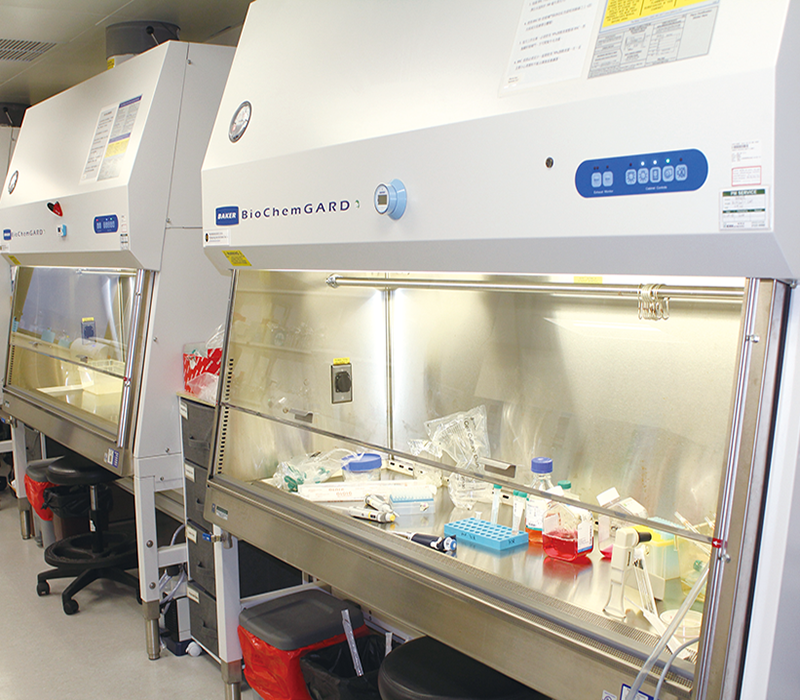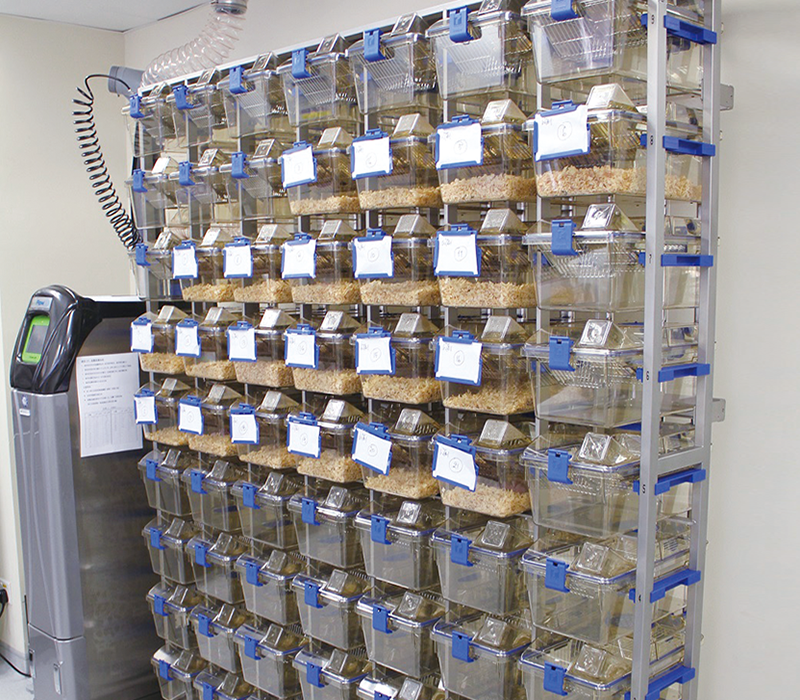Cancer Research Laboratory equipped with large cancer biobank
Cancer is the number one killer in Hong Kong. Jockey Club Cancer Research Laboratory in Queen Elizabeth Hospital (QEH) has been opened earlier upon completion of its redevelopment. The lab is the largest cancer research laboratory in Hospital Authority (HA) other than the similar facilities in the two local university hospitals. Located on the 13th floor of Block R, the 642-sq-m2 laboratory is managed by QEH Department of Clinical Oncology. Equipped with state-of-the-art research facilities, the lab shoulders the responsibility of building a cancer biobank, hoping that it will become a base for cancer specimens. With such a professional research platform, biomedical scientists and clinical oncologists of QEH Clinical Oncology team can join hands to carry out various scientific and translational researches. Currently, the team is working closely in studying the prevalent cancers in Hong Kong, such as nasopharyngeal cancer, lung cancer and breast cancer, as well as finding cancer-associated genes and cancer biomarkers for local populations in order to improve cancer diagnosis and treatment outcomes, and benefit more patients.
Histological and cytological analyses
Equipped with a fluorescence microscopy imaging system, laser capture microdissection, confocal imaging system and fluorescence cell analyser, studies of microscopic anatomy of cells and tissues of organisms will facilitate clinical diagnosis of cancer and identification of prognostic and therapeutic targets.
Cancer biobank
The cancer biobank is equipped with large-scale liquid nitrogen storage tanks and inventory system, as well as ultra-low temperature freezers and freezer temperature monitoring alarm panel. It is set up to collect and store specimens of cancer patients, such as tumour tissues, blood and body fluids. Various types of cancers are covered, including lung cancer, brain cancer, breast cancer, cervical cancer, lymphoma and sarcoma. Laboratory research team will work on these specimens and explore potential cancer biomarkers so as to better manage cancers.
Genomic study and cancer biomarker research
With the application of next-generation sequencer, digital gene amplification equipment, confocal microscopy, tissue microarray and fluorescence cell analyser, the team will look for cancer biomarkers for cancer diagnosis, prognostication, disease monitoring and prevention.
Preclinical test for anti-cancer drug
Experiments with animals are important and irreplaceable for cancer research as these animals are the basic means of studying tumour development and metastasis. The Laboratory has installed a new animal breeding room, and established the tumour models of various immunodeficient mice. Before employing experimental drugs to treat cancer patients, the drugs have to be tested in preclinical settings in cancer cell culture and transplantable tumour models. The actual clinical outcome can be monitored to develop drugs with better tumour treatment response and relatively fewer side effects.
● Stories behind the Chief Executives
COVER STORY
● Hand in hand towards a smooth succession
FEATURE
● Hong Kong Children’s Hospital opens with youngsters’ wellbeing at heart
PEOPLE
● Salute to youth: Martial arts master shines in boxing ring
● A martial art born in warfare
HELEN HA
● It’s everyone’s job to get a jab
● Staff welfare and activity funding increased to $133 per head
WHAT'S NEW
● Professor John Leong Chi-yan lauded for outstanding directorship
● Novel DAR Marker enhances clinical documentation
● Cancer Research Laboratory equipped with large cancer biobank
STAFF CORNER
● Newly appointed management reveal their secrets
● Stride to raise fund and support patients in need
● More love with fewer restraints
● 四代同堂賀百歲 (Chinese version only)

